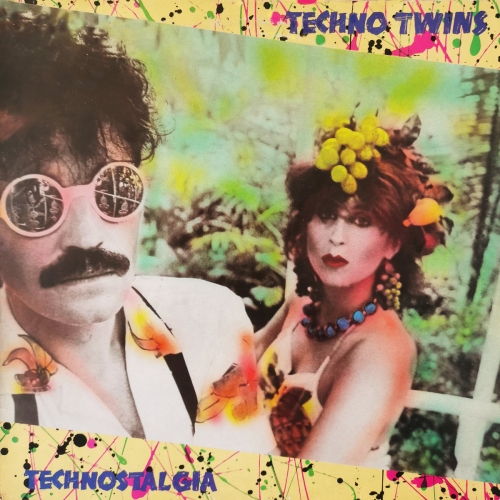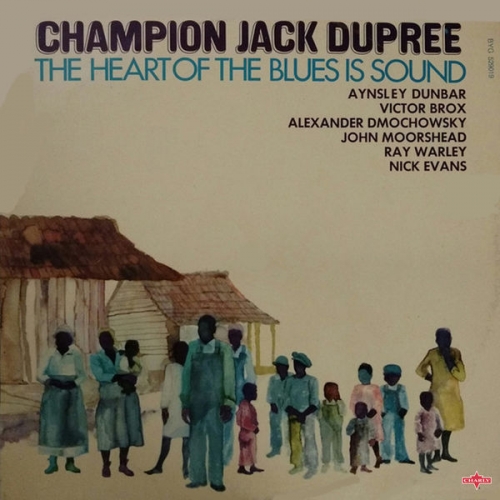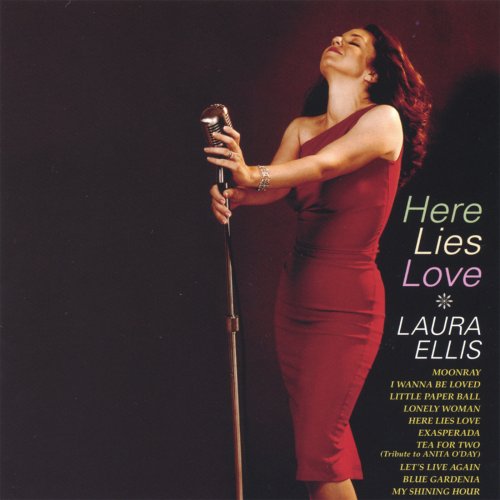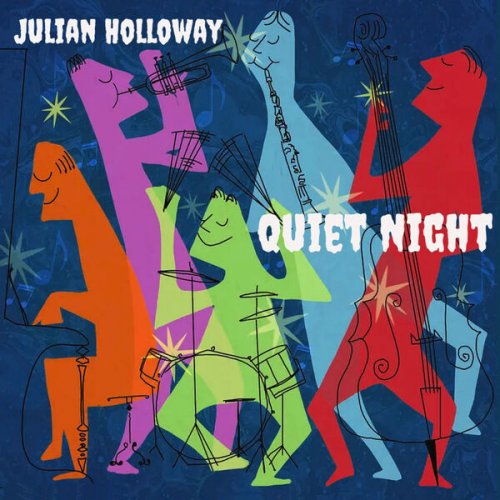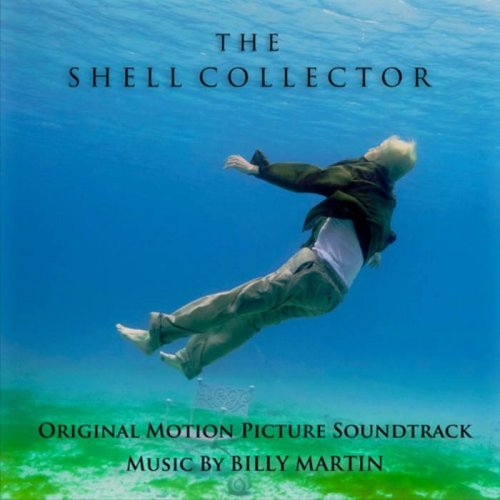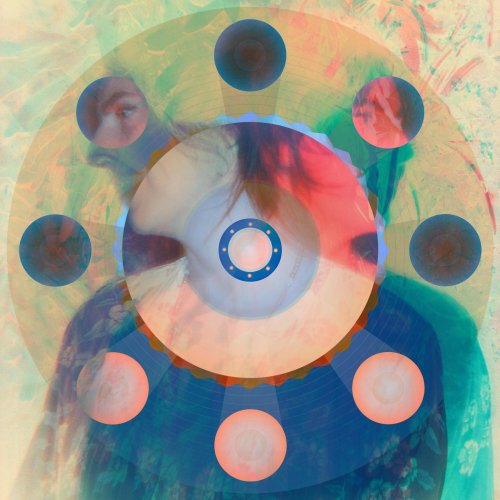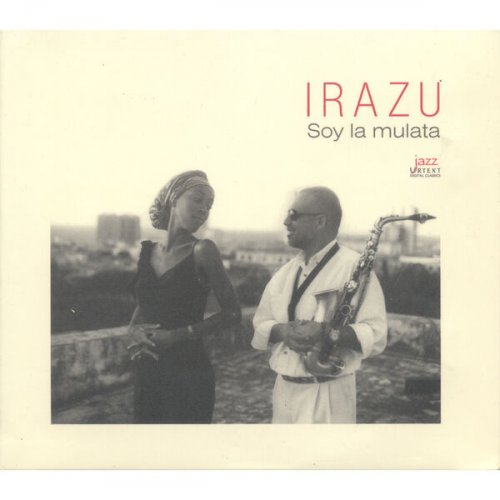Steve Harley - The Candidate (1979)
- 13 Aug, 14:34
- change text size:
Facebook
Twitter
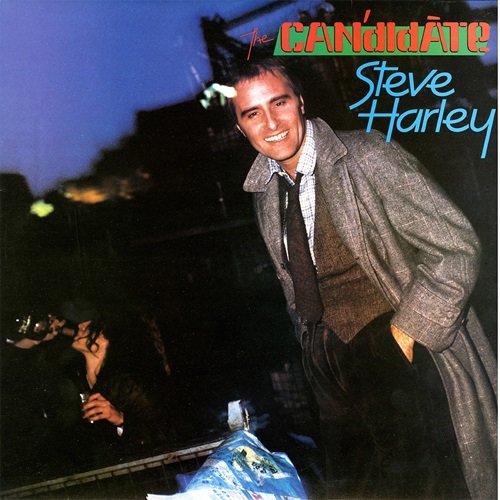
Artist: Steve Harley
Title: The Candidate
Year Of Release: 1979
Label: Chrysalis Records
Genre: Pop Rock
Quality: Mp3 320 / Flac (tracks)
Total Time: 40:23
Total Size: 101/270 Mb
WebSite: Album Preview
Tracklist:Title: The Candidate
Year Of Release: 1979
Label: Chrysalis Records
Genre: Pop Rock
Quality: Mp3 320 / Flac (tracks)
Total Time: 40:23
Total Size: 101/270 Mb
WebSite: Album Preview
01. Audience with the Man 5:42
02. Woodchopper 3:48
03. Freedom's Prisoner 3:51
04. Love on the Rocks 3:34
05. Who's Afraid 4:17
06. One More Time 4:27
07. How Good It Feels 4:10
08. From Here to Eternity 5:11
09. Young Hearts 5:26
Known for his theatrical vocal style and impressionistic, scattershot lyrical stance, Steve Harley is best remembered as the leader of the British rock band Cockney Rebel, whose music fused glam rock, art rock, and ambitious pop. Not afraid of the grandiose, Cockney Rebel's early efforts (1973's The Human Menagerie and 1974's The Psychomodo) produced eccentric, ambitious minor hits like "Sebastian" and "Judy Teen," but Harley asserted his dominance of the group – changing their name to Steve Harley & Cockney Rebel – and scored his biggest hit with "Make Me Smile (Come Up and See Me)," a catchy on the surface, bitter underneath pop song from 1975's The Best Years of Our Lives. Harley's days as a major star in British rock proved to be short, but he remained a potent cult figure, recording and touring when not occupied by his work as an actor and radio host.
Steve Harley was born on February 27, 1951, in the Deptford district of London, England. When he was two years old, Harley was diagnosed with a severe case of polio, and he was in and out of hospitals until he was in his mid-teens, though he survived with only a limp. During his time in treatment, Harley became a voracious reader, and developed an affinity for the work of T.S. Eliot, D.H. Lawrence, John Steinbeck, and Virginia Woolfe. Harley developed an interest in music as a child, learning to play violin and guitar, and when he discovered the music of Bob Dylan, he made his first efforts at writing songs. When he turned 17, Harley left school and pursued a career as a reporter, working at a handful of newspapers until he quit journalism at 21, unhappy with his assignments. In 1971, Harley began performing at folk clubs, as a solo act and with a band called Odin. Before long, Harley had tired of folk music, and in 1972, he formed Cockney Rebel, taking the name from a poem he'd written. The group initially featured Harley on vocals, Jean-Paul Crocker on violin, Nick Jones on guitar, Paul Jeffreys on bass, and Stuart Elliott on drums, but after the addition of Milton Reame-James on electric piano, Harley felt the guitar was superfluous, and they became that rare rock band without an electric guitar.
Noted producer Mickie Most caught Cockney Rebel at a nightclub and signed them to a publishing deal, quickly followed by EMI offering them a recording contract. Their debut album, 1973's The Human Menagerie, included the song "Sebastian," an ambitious poetic effort which didn't click with British listeners but became a significant success in Europe. Urged to come up with a hit song, Harley dusted off an older tune called "Judy Teen'' and gave it a catchier makeover. The plan worked, and "Judy Teen" was a Top Five hit in the U.K., which set the stage for Cockney Rebel's second album, 1974's The Psychomodo, co-produced by Alan Parsons. While touring in support of the album, Harley's bandmates started urging him to let them take a greater role in the creative direction of the band, including writing some of the material. Harley bitterly refused, and Jean-Paul Crocker, Milton Reame-James, and Paul Jeffreys resigned from the band. After cutting a solo single, "Big Big Deal," that failed to chart, Harley assembled a new lineup of Cockney Rebel, featuring Jim Gregan on guitar, Duncan Mackay on keyboards, George Ford on bass, and Stuart Elliott on drums. In case anyone forgot who was in charge, the name was changed to Steve Harley & Cockney Rebel, and the first album with the new lineup, 1974's The Best Years of Our Lives, produced the single "Make Me Smile (Come Up and See Me)," a veiled attack on his former bandmates. It would become Harley's signature song, topping the U.K. charts, being revived several times, and becoming their only single to chart in America, where it peaked at Number 96. A second single from the album, "Mr. Raffles." was also a British hit, where it rose to Number 13.
On the strength of "Make Me Smile (Come Up and See Me)," Harley and Cockney Rebel toured extensively in the U.K. and Europe, and came to the United States as opening act for the Kinks. In 1976, Harley delivered the follow-up to his breakthrough LP, Timeless Flight. The album made its way into the U.K. Top 20, but none of its singles charted, and before 1976 was out, Harley brought out Love's a Prima Donna, which featured a distinctive cover of the Beatles' "Here Comes the Sun" that became a Top Ten single, but otherwise the album was only a modest success. One of Harley's highest profile appearances in the United States was on 1977's I Robot by the Alan Parsons Project; a Top Ten success in America, it featured Harley on lead vocals on the song "The Voice." 1977 also saw the release of Face to Face, a live album drawn from a British tour that ran from December 1976 to January 1977. Shortly before it was released, Harley announced that he was breaking up Cockney Rebel and launching a solo career. He signed a new contract with EMI and relocated to the United States, settling in Southern California. By his own admission, life in California didn't fuel his creative process, and 1978's Hobo with a Grin proved to be a commercial disappointment, though it contained a guest appearance from Marc Bolan that proved to be the T. Rex leader's final recording session before his death in September 1977. In May 1979, Harley was a guest performer for Kate Bush's three-night run at London's Hammersmith Odeon, which closed out her "Tour of Life." They would prove to be Bush's final concert appearances until 2014.
In October 1979, EMI released The Candidate, Harley's second solo effort; once again, sales failed to live up to expectations, and the label dropped him from their roster. In 1980, Harley assembled a new edition of Cockney Rebel, and they celebrated the Yuletide season with a short British tour in December 1980, in part to celebrate the release of The Best of Steve Harley & Cockney Rebel. Harley co-wrote two songs for Rod Stewart's 1980 album Foolish Behaviour, and in 1981 he provided backing vocals on Rick Wakeman's LP 1984, and at year's end Cockney Rebel staged another Christmas tour. In March 1982, Chrysalis Records released a Steve Harley & Cockney Rebel single, "I Can't Even Touch You," produced by Midge Ure. Despite extensive pre-release publicity, it failed to chart. In 1982, Harley made his debut as an actor, playing the leading role in a rock musical about the life of British playwright Christopher Marlowe that was staged at Hofstra University in Long Island, NY. In June 1983, Harley & Cockney Rebel brought out a single, "Ballerina (Prima Donna)," which proved to be their first chart success in years, peaking in the U.K. at Number 51.
In 1985, Harley landed a new record deal with RAK Records, and in May of that year, he unveiled his first single for the label, "Irresistible," which edged into the lower level of the singles chart. In 1985, Andrew Lloyd Webber was putting the finishing touches on his next musical, The Phantom of the Opera, and he wanted to release the title song as a single to generate publicity for the show. Harley was chosen to record it as a duet with Sarah Brightman, and the 45 became a Top Ten single in the U.K. Webber was pleased enough with Harley's performance that he was cast in the show's male lead for its original London production, though after several months of rehearsals, Harley was let go and Michael Crawford was cast in his place. Not long after "The Phantom of the Opera" hit the charts, Harley issued a solo single, "Heartbeat Like Thunder," followed soon afterwards by a remixed version of "Irresistible," both of which were to appear on Harley's first LP for RAK. However, RAK went out of business before it could be released, and when EMI took control of RAK's catalog, they opted not to issue the album. In 1988, Harley recorded a charity single, "Whatever You Believe," with Jon Anderson and Mike Batt, and the following year, Harley once again introduced a new version of Cockney Rebel, issuing a single, "When I'm With You," to promote a British concert tour. Harley and his band ramped up their touring schedule, and re-established themselves as a significant draw in Europe and the United Kingdom in the early '90s, while Harley issued a solo effort, Yes You Can, in 1993, which included new recordings of some of the songs from the unreleased RAK album. Another solo LP, Poetic Justice, came out in 1996, and in 1998 he staged his "Stripped to the Bare Bones" tour, in which he performed acoustic sets with guitarist and violinist Nick Pynn as his only accompanist. The tour was a success, with Harley and Pynn playing over one hundred dates, and a March 1988 date at London's Jazz Cafe was recorded for the 1999 release Stripped to the Bare Bones.
In 1999, Harley became the host of a BBC Radio 2 series, The Sound of the 70s, and the show was popular enough to run for eight years. Harley founded his own label, Comeuppance Ltd, reissuing titles from his back catalog as well as new studio and live projects, including 2003's Acoustic and Pure: Live. Harley and Cockney Rebel staged a full-band tour in 2001, and in 2005, they issued an album, The Quality of Mercy, which was the first studio album from Cockney Rebel since 1976. A three-disc box set, The Cockney Rebel: A Steve Harley Anthology, was brought out by EMI in 2006. Harley recorded a solo studio effort, 2010's A Stranger Comes to Town, which featured several songs dealing with his antipathy towards the rise of electronic technology. A fresh song from Harley, "Ordinary People," was issued as a digital single in 2015, and was the first new song he'd released in five years. Later that year, Harley celebrated the 40th anniversary of the release of The Best Years of Our Lives with a tour reuniting the surviving members of the Cockney Rebel lineup that recorded it.
Uncovered was a studio LP that featured two original songs from Harley and covers of nine of his favorite songs. It was released in February 2020, just as the COVID-19 pandemic was taking hold, and most of the dates of a projected tour had to be canceled, though later in the year he staged an online question & answer session for his fans that was so popular that three more were scheduled. Harley resumed touring in August 2021, and he continued to regularly play live shows until October 2023, when he postponed all his scheduled shows to deal with medical problems. On March 17, 2024, Steve Harley died while in treatment for cancer; he was 73 years old.
Steve Harley was born on February 27, 1951, in the Deptford district of London, England. When he was two years old, Harley was diagnosed with a severe case of polio, and he was in and out of hospitals until he was in his mid-teens, though he survived with only a limp. During his time in treatment, Harley became a voracious reader, and developed an affinity for the work of T.S. Eliot, D.H. Lawrence, John Steinbeck, and Virginia Woolfe. Harley developed an interest in music as a child, learning to play violin and guitar, and when he discovered the music of Bob Dylan, he made his first efforts at writing songs. When he turned 17, Harley left school and pursued a career as a reporter, working at a handful of newspapers until he quit journalism at 21, unhappy with his assignments. In 1971, Harley began performing at folk clubs, as a solo act and with a band called Odin. Before long, Harley had tired of folk music, and in 1972, he formed Cockney Rebel, taking the name from a poem he'd written. The group initially featured Harley on vocals, Jean-Paul Crocker on violin, Nick Jones on guitar, Paul Jeffreys on bass, and Stuart Elliott on drums, but after the addition of Milton Reame-James on electric piano, Harley felt the guitar was superfluous, and they became that rare rock band without an electric guitar.
Noted producer Mickie Most caught Cockney Rebel at a nightclub and signed them to a publishing deal, quickly followed by EMI offering them a recording contract. Their debut album, 1973's The Human Menagerie, included the song "Sebastian," an ambitious poetic effort which didn't click with British listeners but became a significant success in Europe. Urged to come up with a hit song, Harley dusted off an older tune called "Judy Teen'' and gave it a catchier makeover. The plan worked, and "Judy Teen" was a Top Five hit in the U.K., which set the stage for Cockney Rebel's second album, 1974's The Psychomodo, co-produced by Alan Parsons. While touring in support of the album, Harley's bandmates started urging him to let them take a greater role in the creative direction of the band, including writing some of the material. Harley bitterly refused, and Jean-Paul Crocker, Milton Reame-James, and Paul Jeffreys resigned from the band. After cutting a solo single, "Big Big Deal," that failed to chart, Harley assembled a new lineup of Cockney Rebel, featuring Jim Gregan on guitar, Duncan Mackay on keyboards, George Ford on bass, and Stuart Elliott on drums. In case anyone forgot who was in charge, the name was changed to Steve Harley & Cockney Rebel, and the first album with the new lineup, 1974's The Best Years of Our Lives, produced the single "Make Me Smile (Come Up and See Me)," a veiled attack on his former bandmates. It would become Harley's signature song, topping the U.K. charts, being revived several times, and becoming their only single to chart in America, where it peaked at Number 96. A second single from the album, "Mr. Raffles." was also a British hit, where it rose to Number 13.
On the strength of "Make Me Smile (Come Up and See Me)," Harley and Cockney Rebel toured extensively in the U.K. and Europe, and came to the United States as opening act for the Kinks. In 1976, Harley delivered the follow-up to his breakthrough LP, Timeless Flight. The album made its way into the U.K. Top 20, but none of its singles charted, and before 1976 was out, Harley brought out Love's a Prima Donna, which featured a distinctive cover of the Beatles' "Here Comes the Sun" that became a Top Ten single, but otherwise the album was only a modest success. One of Harley's highest profile appearances in the United States was on 1977's I Robot by the Alan Parsons Project; a Top Ten success in America, it featured Harley on lead vocals on the song "The Voice." 1977 also saw the release of Face to Face, a live album drawn from a British tour that ran from December 1976 to January 1977. Shortly before it was released, Harley announced that he was breaking up Cockney Rebel and launching a solo career. He signed a new contract with EMI and relocated to the United States, settling in Southern California. By his own admission, life in California didn't fuel his creative process, and 1978's Hobo with a Grin proved to be a commercial disappointment, though it contained a guest appearance from Marc Bolan that proved to be the T. Rex leader's final recording session before his death in September 1977. In May 1979, Harley was a guest performer for Kate Bush's three-night run at London's Hammersmith Odeon, which closed out her "Tour of Life." They would prove to be Bush's final concert appearances until 2014.
In October 1979, EMI released The Candidate, Harley's second solo effort; once again, sales failed to live up to expectations, and the label dropped him from their roster. In 1980, Harley assembled a new edition of Cockney Rebel, and they celebrated the Yuletide season with a short British tour in December 1980, in part to celebrate the release of The Best of Steve Harley & Cockney Rebel. Harley co-wrote two songs for Rod Stewart's 1980 album Foolish Behaviour, and in 1981 he provided backing vocals on Rick Wakeman's LP 1984, and at year's end Cockney Rebel staged another Christmas tour. In March 1982, Chrysalis Records released a Steve Harley & Cockney Rebel single, "I Can't Even Touch You," produced by Midge Ure. Despite extensive pre-release publicity, it failed to chart. In 1982, Harley made his debut as an actor, playing the leading role in a rock musical about the life of British playwright Christopher Marlowe that was staged at Hofstra University in Long Island, NY. In June 1983, Harley & Cockney Rebel brought out a single, "Ballerina (Prima Donna)," which proved to be their first chart success in years, peaking in the U.K. at Number 51.
In 1985, Harley landed a new record deal with RAK Records, and in May of that year, he unveiled his first single for the label, "Irresistible," which edged into the lower level of the singles chart. In 1985, Andrew Lloyd Webber was putting the finishing touches on his next musical, The Phantom of the Opera, and he wanted to release the title song as a single to generate publicity for the show. Harley was chosen to record it as a duet with Sarah Brightman, and the 45 became a Top Ten single in the U.K. Webber was pleased enough with Harley's performance that he was cast in the show's male lead for its original London production, though after several months of rehearsals, Harley was let go and Michael Crawford was cast in his place. Not long after "The Phantom of the Opera" hit the charts, Harley issued a solo single, "Heartbeat Like Thunder," followed soon afterwards by a remixed version of "Irresistible," both of which were to appear on Harley's first LP for RAK. However, RAK went out of business before it could be released, and when EMI took control of RAK's catalog, they opted not to issue the album. In 1988, Harley recorded a charity single, "Whatever You Believe," with Jon Anderson and Mike Batt, and the following year, Harley once again introduced a new version of Cockney Rebel, issuing a single, "When I'm With You," to promote a British concert tour. Harley and his band ramped up their touring schedule, and re-established themselves as a significant draw in Europe and the United Kingdom in the early '90s, while Harley issued a solo effort, Yes You Can, in 1993, which included new recordings of some of the songs from the unreleased RAK album. Another solo LP, Poetic Justice, came out in 1996, and in 1998 he staged his "Stripped to the Bare Bones" tour, in which he performed acoustic sets with guitarist and violinist Nick Pynn as his only accompanist. The tour was a success, with Harley and Pynn playing over one hundred dates, and a March 1988 date at London's Jazz Cafe was recorded for the 1999 release Stripped to the Bare Bones.
In 1999, Harley became the host of a BBC Radio 2 series, The Sound of the 70s, and the show was popular enough to run for eight years. Harley founded his own label, Comeuppance Ltd, reissuing titles from his back catalog as well as new studio and live projects, including 2003's Acoustic and Pure: Live. Harley and Cockney Rebel staged a full-band tour in 2001, and in 2005, they issued an album, The Quality of Mercy, which was the first studio album from Cockney Rebel since 1976. A three-disc box set, The Cockney Rebel: A Steve Harley Anthology, was brought out by EMI in 2006. Harley recorded a solo studio effort, 2010's A Stranger Comes to Town, which featured several songs dealing with his antipathy towards the rise of electronic technology. A fresh song from Harley, "Ordinary People," was issued as a digital single in 2015, and was the first new song he'd released in five years. Later that year, Harley celebrated the 40th anniversary of the release of The Best Years of Our Lives with a tour reuniting the surviving members of the Cockney Rebel lineup that recorded it.
Uncovered was a studio LP that featured two original songs from Harley and covers of nine of his favorite songs. It was released in February 2020, just as the COVID-19 pandemic was taking hold, and most of the dates of a projected tour had to be canceled, though later in the year he staged an online question & answer session for his fans that was so popular that three more were scheduled. Harley resumed touring in August 2021, and he continued to regularly play live shows until October 2023, when he postponed all his scheduled shows to deal with medical problems. On March 17, 2024, Steve Harley died while in treatment for cancer; he was 73 years old.

